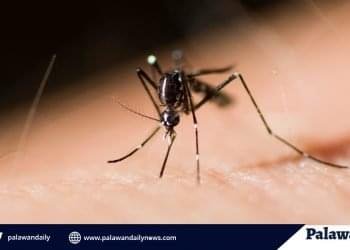At the onset of the spread of a new strain of coronavirus, we are now left to prevent it from taking the full stage of being epidemic. Nothing to panic, but let us be informed about this health scenario.
As we already know, or maybe we want to know, Coronaviruses (CoV), according to the World Health Organization, are viruses transmitted between animals (including camels, cats, bats, etc.) and people that cause illness ranging from common cold to more severe diseases such as the Middle East Respiratory Syndrome or MERS-CoV and the Severe Acute Respiratory Syndrome or SARS-CoV.
Novel (Latin for New) Coronavirus (nCoV) is a new strain of this family of viruses that have only been recently identified late last year (2019) in Wuhan, Hubei Province, China.
As with MERS-CoV and SARS-CoV, common signs of infection of the Novel Coronavirus include respiratory symptoms, fever, cough, breathing difficulties and in severe cases, the said infection may cause pneumonia, severe acute respiratory syndrome, kidney failure and even, death.
According to the Centres for Disease Control and Prevention (CDC), nCoV spreads via respiratory droplets produced when an infected person coughs or sneezes. There is no available vaccine as of today yet to avert the spread of the virus. However, there may be more ways to protect everyone from contamination especially the very young, elderlies and those who have a weak immune system.
Normally, as what our health professionals and agencies have been promoting, the best way still is to protect ourselves from exposure to the said virus. This, even if, authorities assured us that the virus has not yet spread in our locality in order not to cause panic or discomfort.
Still, we lose nothing, should we follow a daily habit of preventive routine to fend off the spread of nCoV.
International health institutions like the WHO and CDC, as well the Department of Health in the Philippines have a common recommendation to prevent the spread of the nCoV – and that is, proper washing of hands.
According to health care experts, washing our hands should be done with soap for several seconds with running water. Alcohol-based sanitizer may be an alternative should there be no available water and soap.
Otherwise, we should avoid touching our eyes, nose, and especially our mouth with our hands unwashed.
Without medical expert supervision or clearance, we should avoid contact with people who are sick. Or when we are sick, let’s take the initiative of keeping ourselves exposed to other people by staying at home, or if severely unwell to clinic/ hospital under medical attention.
However, if work demands that you need to be out in a field or office, take the lead of covering our mouth and nose when we cough or sneeze with a tissue and dispose of properly.
We should also increase our intake of food that will boost our immune system that will build resistance against these viruses.
Should we still manifest the above symptoms, let’s volunteer ourselves to receive supportive medical care and attention in order to relieve these symptoms.
Let’s work hand-in-hand to fight against these viruses. Refrain from sharing unverified and fake news. Be informed, be vigilant.
Sources:
Centres of Disease Control and Prevention
World Health Organisation
Department of Health, Philippines
(co-authored by Dr Ryan Elrey Librea Navarro)
















Discussion about this post